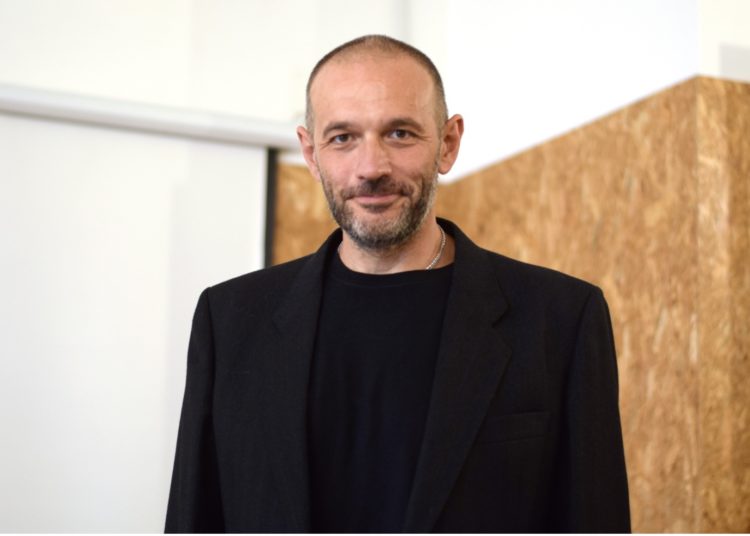This post is also available in: Français (French) العربية (Arabic)
This message, from Manahel Alsahoui, coordinator of the Arabic edition of Medfeminiswiya, was sent out just after the Islamist rebel militant group Hayat Tahrir al-Sham (HTS) entered the Syrian capital of Damascus after a lightning offensive.
Herself Syrian, a refugee in Lebanon for seven years, persona non grata in Syria for her anti-Assad political stance, she has not been able to see her family or visit her country all this time. Worse still, Manahel cannot leave Lebanon because she’s had “undocumented” status in this country for more than two years: if she were to leave Lebanese soil, for Europe for instance, it would be a one-way trip for her, with no hope of return.
Her euphoria was understandable, further communicated by her on the group that same day: “I’m going crazy with happiness! To the point of tears. I still can’t process what’s happening. More than 50 years of repression collapsing… the details of the terror we’ve known since we were kids are fading away… we’re anticipating what comes next and are certainly afraid, but we are also full of hope for the future of Syrians!”
Her jubilation is shared both by our Syrian correspondents, Rahada Abdoush and Loujein Haj Youssef, with whom we are already discussing articles to be written, and our Lebanese friends, Maya El Ammar, Medfeminiswiya cofounder, and Pascale Sawma, our reporter in Beirut, who are also marked by the continual instability of a Middle East perpetually shaken by war. They too have experienced firsthand the painful consequences of the Assads’ domination over Lebanon, including the assassination of Rafic Hariri in Beirut in 2005.
The cards of the Middle East, once again dizzyingly reshuffled, are to be redistributed according to the very complex geopolitical tensions hampering any balance in the region.
Our WhatsApp group quickly turned festive, with congratulations streaming in from Spain, Italy, France, Morocco, Tunisia, Algeria… from all around the Mediterranean basin, “which unites and separates us,” according to our motto.
Each of us then turned to the media, which all night covered the fall of the Assad regime and its sinister Baath party. We learned that the “executioner of Damascus” had indeed left Syria via Damascus International Airport—he who ruled over his country with an iron fist for 24 years, continuing the reign of terror started by his father Hafez al-Assad in 1971, and who in 2011 repressed, with fire and blood, a revolt that turned into one of the fiercest civil wars of current times. A lot of information was also being shared about Abu Mohammed al-Jolani, leader of Hayat Tahrir al-Sham, framed as a repentant jihadist.
Evin Yusuf sent us photos of statues of the tyrants, father and son, being toppled, of prisoners being freed, of women and men celebrating their newly acquired freedom…
But in the group, others expressed their concern. What if yesterday’s tyrants, who threw thousands of Syrian women in prison and were blatantly misogynistic and hateful of women, are to be replaced by new barbarians, even more brutal towards women and more ferociously against their rights?
“Is this the victory of cholera over the plague?” some wondered.
“Islamo-panic,” some of us said, but without intending to take away even an iota of the hope felt by our Syrian colleagues.
“Am I in a movie? Is this a dream or reality? Haram… all these wasted years. May God preserve our country,” Loujein wrote.
The liberator of Damascus Abu Mohammed al-Jolani, former emir of the al-Nusra Front, may well try to smooth out and revamp his image, abandoning, among other things, his past attributes—abaya and black turban—but the fact remains that he loudly claims to be a radical Islamist. This movement is hyper conservative, its ideology fueled by sharia, making it therefore risky for women.
It is difficult today to predict what policies the new strongman of Syria will adopt towards women. The cards of the Middle East, once again dizzyingly reshuffled, are to be redistributed according to the very complex geopolitical tensions hampering any balance in the region.
Still, while we wait for the days to come, the joy that Syrians feel is legitimate. On our WhatsApp chat, it’s absolutely contagious, and it allows all those living under authoritarian regimes the hope to dream…
Syria is a celebration. Let’s hope it continues.































